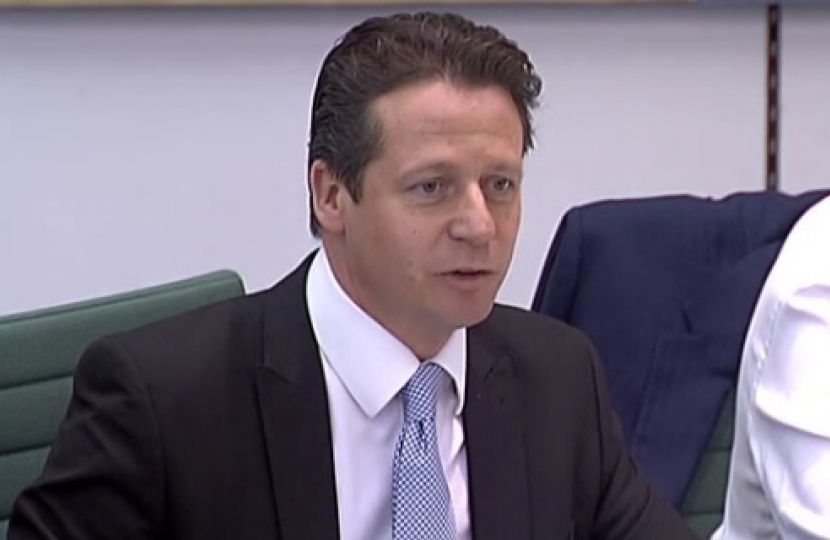
I am calling for consumers to exercise caution when buying concert and event tickets from certain online platforms following a hearing of the Culture, Media and Sport Select Committee. The Committee held its second session on ticket touting on 21st March, taking evidence from primary ticketing platforms, artist managers, promoters and victims of fraudulent sales. Secondary ticket platform Viagogo had been invited to give evidence at the session but declined to attend. Though not unprecedented, it is highly unusual for a body to be ‘empty-chaired’ and Viagogo’s refusal to testify was strongly criticised by Committee members. By refusing to send an executive to answer the Committee’s questions, Viagogo showed if not contempt for Parliament, a lack of respect to Parliament and by extension the British public.
The Committee heard from Keith Kenny, the Sales and Ticketing Director for the American musical Hamilton, that secondary ticketing platforms such as Viagogo advertise and sell tickets for events that buyers would not gain access to, and often for a considerably higher price than the face value of the real tickets. During the session I gave the example of a pair Little Mix concert tickets advertised on Viagogo with a face value of £45 per ticket being offered for sale at £1,423, plus a further £491 charge to cover VAT, booking fees and ticket handling. I criticised the psychological manipulation employed by these ticketing platforms, such as prompting customers with messages about how many other people are viewing the tickets and warning that the tickets are likely to sell out soon, so that the customer is panicked into making a purchase.
Testimony was also given about artists and concert promoters pro-actively reaching out to secondary ticket platforms to inform them that the terms and conditions of their tickets do not allow for resale and explicitly asking for their event not to be advertised on their sites, only for tickets to be sold on these secondary platforms anyway. These secondary platforms are therefore selling tickets in full knowledge that the organisers will consider them invalid and the customer may well be denied entry to the venue.
The original intent of the secondary ticket market was to provide a service to consumers unable to turn up to an event and it is important to remember that those purchasing tickets from secondary platforms are still fans. However the evidence we have heard shows that instead of being provided with a service, fans are being deceived into buying invalid tickets and often at a price far higher than the original ticket’s face value. We need to bring an end to this exploitation by increasing consumer awareness about potentially fraudulent and invalid ticket sales and making consumers more aware of how to find legitimate ticketing platforms. Together with my colleagues on the Committee, I will also continue to explore whether further legislative change is necessary and review the enforcement of existing legislation.
The FanFair Alliance, a group established to combat online ticket touting, has recently published a guide to help fans seeking to navigate the ticket buying process. The online guide is available here: http://fanfairalliance.org/launch-new-online-guide-to-beat-touts/
